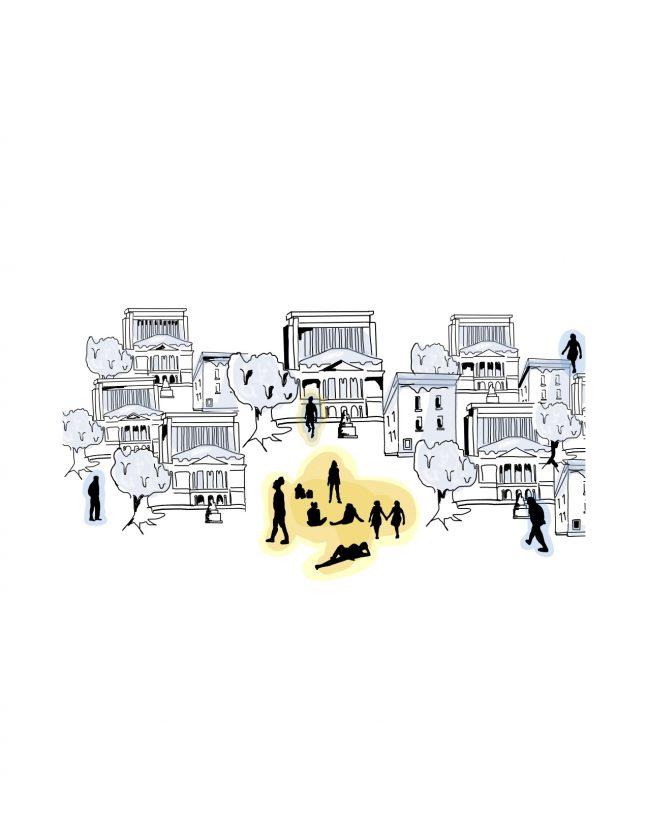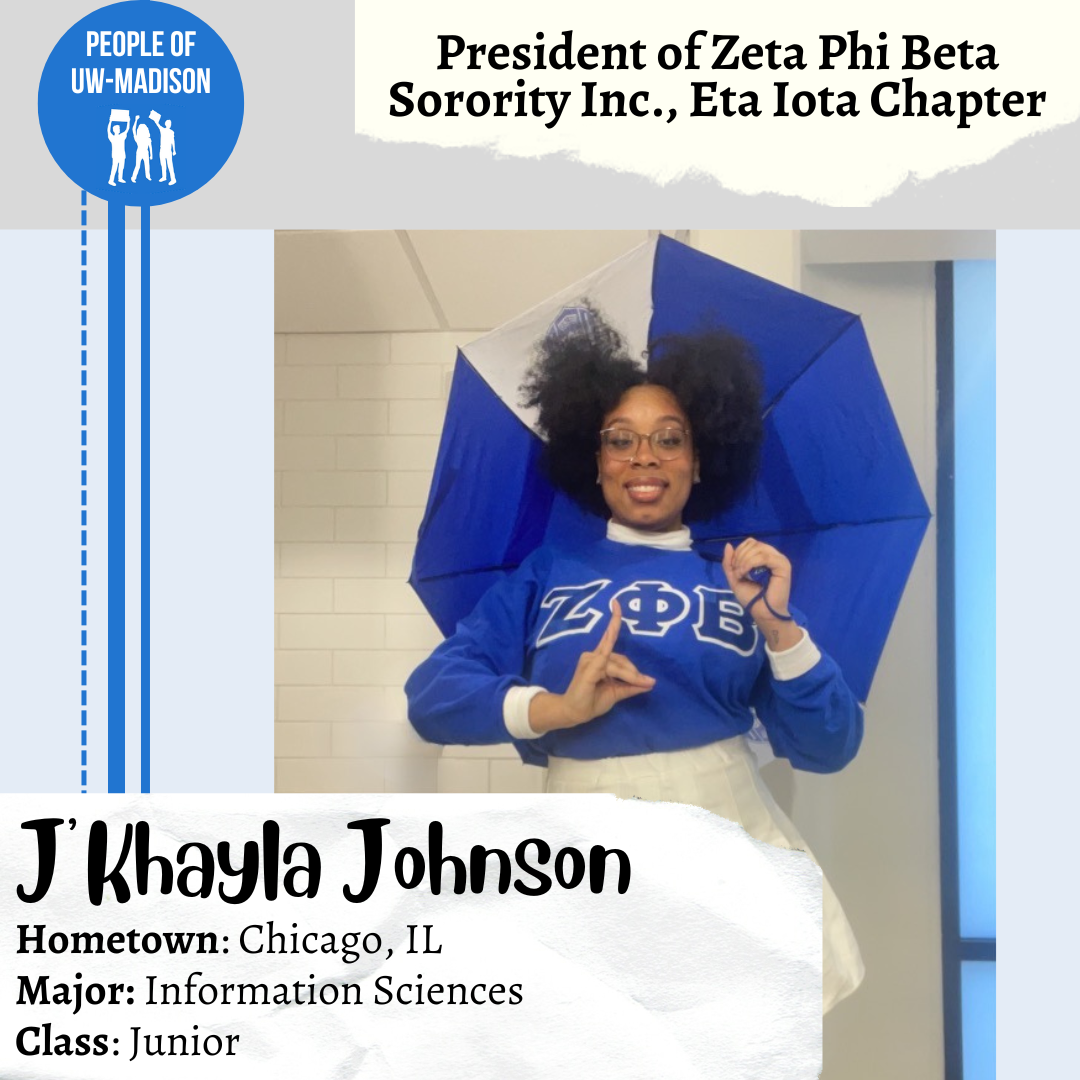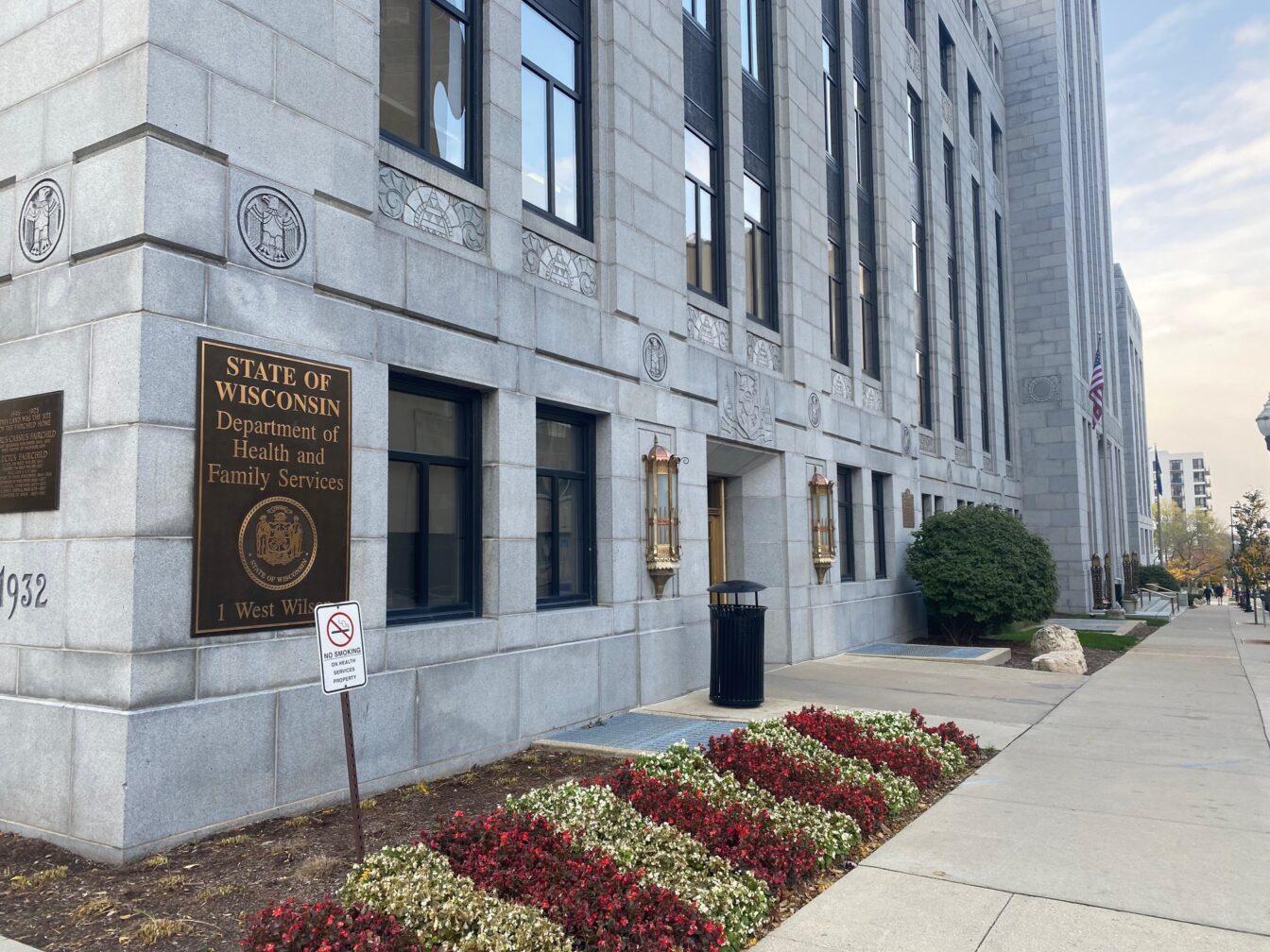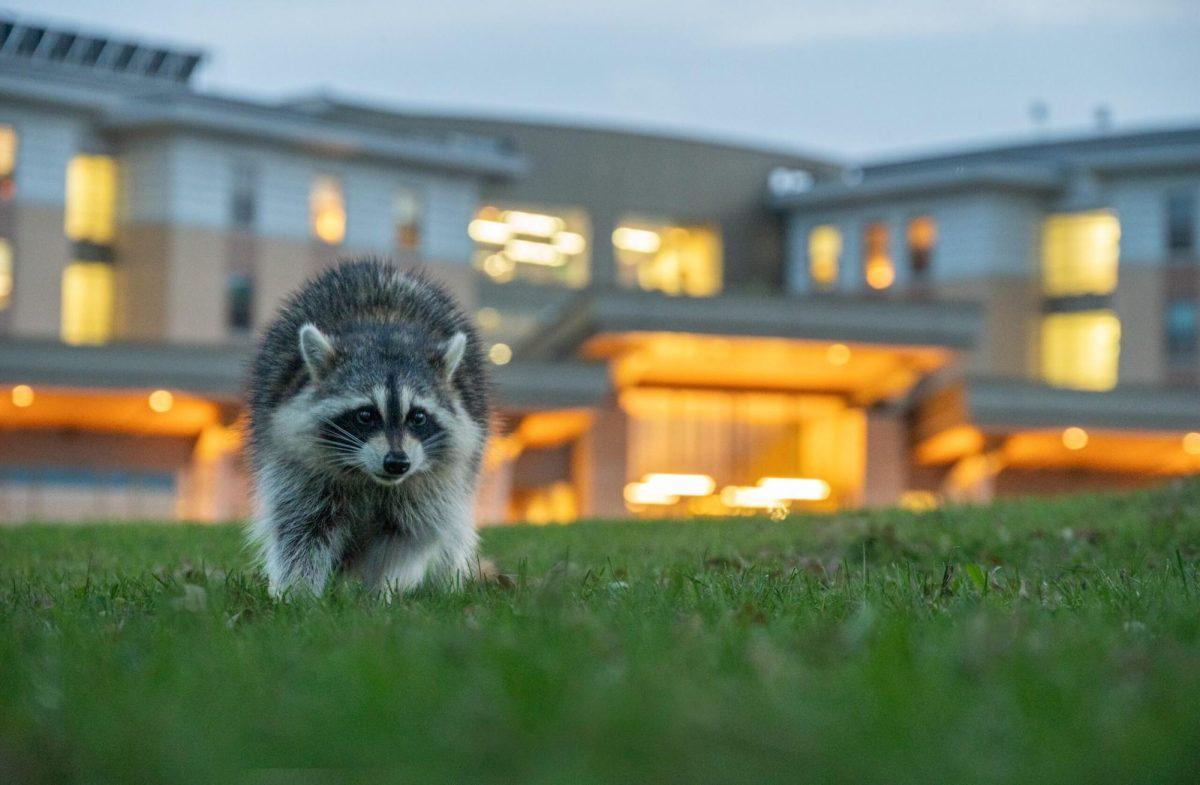In the fall of 2017, Agalia Ardyasa made the decision to pack her bags and travel more than 9,000 miles away from home to attend college in the U.S.
Originally from Jakarta, Indonesia, Ardyasa said her time at the University of Wisconsin has been treating her better than she could have ever expected.
“Everyone is always curious about my background and why I decided to go to Madison,” Ardyasa said.
Now a sophomore, she has found companionship through her classes and student organizations, where she discovered her place as a leader. Ardyasa became involved with the Associated Students of Madison almost immediately, now serving as the Equity and Inclusion Committee chair.
During her first semester on campus, Ardyasa attended several kick-off meetings for student organizations she believes strive to improve UW’s campus climate.
“I did not have a specific goal in mind, but I knew I wanted to be more involved in making UW-Madison a better place,” Ardyasa said. “I stayed active and tried my best to contribute to the team.”
Ardyasa has many responsibilities as EIC chair, but she primarily serves as a liaison between students and administrators on issues of diversity, inclusion and equity matters on campus.
Since Ardyasa views her role as a rewarding and eye-opening experience, she believes the campus climate has been improving.
She said her time on campus has been overwhelmingly positive thus far as she surrounds herself mostly with people who have a similar vision and mission on life.
Yet for a multitude of reasons, this same sense of belonging does not unfold so easily for others.
For certain students, feeling welcome and safe on campus may never be their reality.
UW study finds racial disparities in drinking culture, campus climate
While the campus climate results from the university’s first administered survey found that 81 percent of students experience a positive campus climate, a different picture begins to form when focused on particular groups.
Only 69 percent of LGBTQ+ students, 67 percent of students with a disability, 65 percent of students of color, and 50 percent of transgender or non-binary students agree that time spent at UW is positive overall.
The Other Side
It has been a hard journey for UW senior Ricardo Cortez de la Cruz II.
De la Cruz, a First Wave Scholar, began his college career by surrounding himself with the 14 fellow students in his cohort as a means of support. Without much diversity on campus, de la Cruz struggled to find people outside of First Wave who could relate to his experiences, making his first year difficult.
Attempting to overcome this adversity, de la Cruz has made several efforts over the years to challenge the status quo. After an incident in 2016 where one of his cohort sisters was spat on and insulted inside Sellery Hall, de la Cruz decided filing a hate and bias report was not enough.
This was the third incident reported within a week, so his cohort took action into their own hands with a social media movement known as #TheRealUW.
The hashtag garnered media attention from several news outlets across the nation while simultaneously stirring controversy in Wisconsin and beyond.
For further efforts, de la Cruz has received backlash from his fellow students over the years as extreme as attempted kidnap and a threatening letter that attempted to justify why he and his fellow protesters should be shot for their actions. Looking back, he admits his experience was more dangerous than he previously thought.
Through his eyes, campus climate hasn’t changed.
Farhat Bhuiyan was also a student at UW when these events took place. Following the 2016 incidents, Bhuiyan said campus climate marginally improved through increased efforts by the university, social media attention, and student involvement with projects working toward improvement.
In the long run, however, she believes campus climate has suffered from a lack of accountability and a widely shared commitment to change from everyone at UW.
“I remember the noose incident in Camp Randall, the student who was spit on and called the n-word, and the student who found swastikas on their door,” Bhuiyan said. “These terrible acts were publicized, but there are many more cases that aren’t reported.”
Bhuiyan had a tough freshman year. She felt like an outsider within UW’s social landscape and couldn’t adapt to the pace of classes because she didn’t move into the dorms like a majority of her fellow classmates.
Like Ardyasa, Bhuiyan tried to surround herself with people who care about her and value similar things, while also challenging her to become a better person and pursue new experiences. But this search came later than it did for many of her freshman classmates.
“I think people immediately try to connect with the people they live with as freshmen in the dorms,” Bhuiyan said. “Everyone is on the same level and there is a lot to bond over because their experiences are relatable. I definitely felt like I missed out.”
Bhuiyan began to make these connections with like-minded individuals through the Wisconsin Union Directorate by applying for one of their leadership positions.
Entering as the associate director for the Global Connections Committee, she has sought a position within WUD every year since. The organization has become Bhuiyan’s community on campus as well as a great place for her to grow and learn.
Now serving as the vice president of internal relations, she considers a key part of her role to serve as a liaison between students, staff, alumni and community members. Of the many responsibilities Bhuiyan takes on, she acts as a resource for numerous students in WUD roles by promoting their leadership and development.
Ardyasa, de la Cruz and Bhuiyan all view themselves as playing an active role in improving UW’s campus climate as student leaders. But not everyone on campus interprets their efforts to improve campus climate as effective.
While activists like de la Cruz are often viewed more negatively for their actions, Ardyasa and Bhuiyan are less likely to receive backlash for the work they do through student university positions.
Bhuiyan got involved in her roles to find a community on campus where she could also effect change, but she acknowledges that other students have different experiences that inform the various ways they work toward that same goal.
“It’s important to understand that everyone has different priorities and to recognize that sometimes other people who may act as an obstacle to accomplishing your goals are really just fighting for their communities in the only way they know how,” Bhuiyan said.
“I am UW”
While Interim Dean of Students Argyle Wade appreciates how much students like de la Cruz, Ardyasa and Bhuiyan continue to push and ask for more change, he also understands the difficulty for some to establish a balance between the immediate and long-term change.
“Students, especially undergrad students, if you’re only here for four years it’s hard to have a longitudinal lens,” Wade said. “And our students refresh every year. There’s always a new group of freshmen, so you’re starting with them at that same spot you just started with the seniors four years ago.”
For someone like Chief Diversity Officer Patrick Sims, who was a graduate student at UW and spent the last 15 years transitioning from his role as a faculty member to an administrative official, the ebb and flow of campus relations is more clear-cut.
Sims’ perspective allows him to understand the difference between what it feels like to pressure administrators in his graduate department to make improvements and what it feels like to be in the hot seat himself. Having compared and contrasted experiences from both sides, Sims can now see not only why some believe efforts to improve relations are inadequate, but also how much work goes on behind-the-scenes to make change happen.
Given the constant changes in population and the needs of each student and their communities, UW administrative officials continuously juggle priorities and strategize solutions with the intention of improving campus relations. But addressing how to do this on an administrative level is a slow process: These issues require time and teamwork.
Many of the solutions implemented on campus in recent years — such as Our Wisconsin, the Discussion Project and Badger Promise — began to materialize after analyzing the data from the 2016 campus climate survey.
Building the instrument to administer such a survey took almost two years. Analyzing the data provided by thousands of student responses took another four months. Based on that, a subcommittee dedicated another six months to drafting a set of recommendations that would allow them to proceed.
Shared Governance Committee hosts panel to discuss how to use campus climate survey effectively
It took nearly three years of action and analysis for the administration to conclude what their next steps would be, and during this time thousands of students cycled in and out of UW.
More recently, a new campaign has come to fruition based on two of the campus climate report recommendations — promoting shared values around diversity inclusion and finding ways to encourage dialogue across difference.
Sims said they wanted to find a message that was affirming across the board. One that didn’t discredit or dismiss identity differences around which not only students, but also staff and faculty, could feel a sense of cohesion. This affirming message — I am UW.
“We want to show the full breadth of what the UW experience is,” Sims said. “It’s not just the typical assumption about whether you’re a cis-gendered, white male student at UW. We have different experiences across the board, so we want to highlight those.”
The campaign is planned for promotion on digital and social media platforms in an attempt to reach students where they often direct their attention. Sims said there will also be sessions on campus to demonstrate how the “I am UW” experience can be owned by students and taken to the next level.
Wade believes many students are passionate about improving campus climate. This is especially true, he believes, among students who feel that their identity is not being valued or represented in the UW community the way it deserves to be.
Wade said, however, majority students are the ones who really need to be called to attention and asked to participate in deeper ways because it’s not just a certain group of students that need to be doing the work.
“Once you engage in [improving campus climate] — you’re going to want to continue,” Sims said.
This sentiment resonates with Ardyasa, who is a student member of the “I am UW” advisory board, because she has been actively advocating for a more inclusive UW from her first moments on campus.
But some students simply don’t know where to start.
Bhuiyan admits that many issues surrounding campus relations often seem large and complicated. She believes, then, that the priority lies in focusing on what one can do rather than what they cannot. This includes making new connections, building bridges and creating allies to achieve a greater goal.
“I would encourage [fellow students] to find an issue they are passionate about through clubs, programs, or other activities and focus on understanding how that issue interacts with bodies on campus,” Bhuiyan said.
Bhuiyan believes that finding a support group or a community that is passionate about similar issues is the first step to creating lasting change. She said if students fail to take chances or try something new, they are depriving themselves of a learning opportunity.
Madison mayoral candidates discuss racial climate, affordable housing
“If you want the world to change, you’ve got to participate in it,” Sims said. “You don’t get to complain about the outcomes if you don’t participate in the process to effect the change of the outcome.”
Mobilizing change
Every UW student came to the university with a purpose in mind. While their reasons may differ, the goal for everyone is to achieve that purpose some way, somehow.
But to fulfill these goals, the environment in which each person is expected to exist must be welcoming and safe for the entire student body.
One can hope the campaigns and ideas put forth by the administration will help improve campus climate and relations, but they will never be enough without well-intentioned and interested students participating alongside.
Change in terms of administrative efforts will always take time, but the more people willing to join in, the more likely the change.
“Playing it safe is not going to help [students] or this campus in a way that it could,” Wade said. “So I hope when we think about all, we’re really thinking about all and not just the students who are already fairly passionate or already out there doing a lot.”
Not everyone is contributing to the negative experiences some students face on campus, but not everyone is playing an active role in ensuring a positive experience either.
While some students may never find interest in working toward this common goal, Bhuiyan said those who are interested and passionate should lead by example — we cannot change other people’s behavior, she said, but we can control our own.














